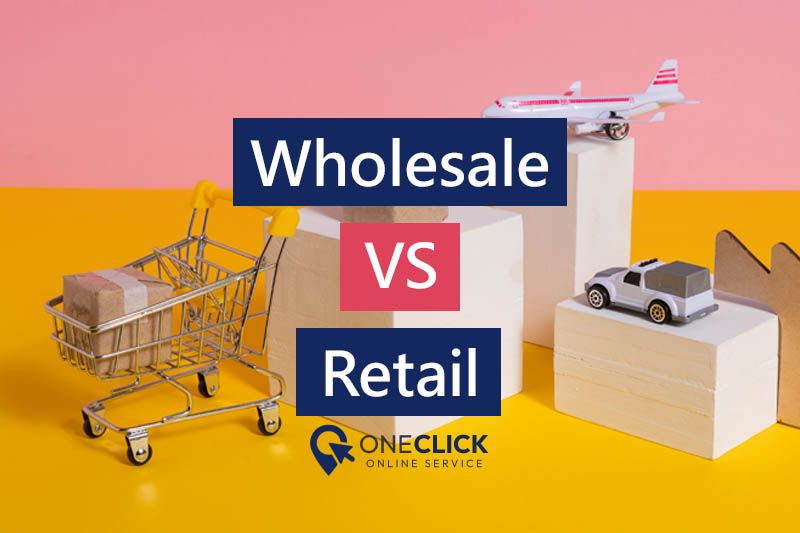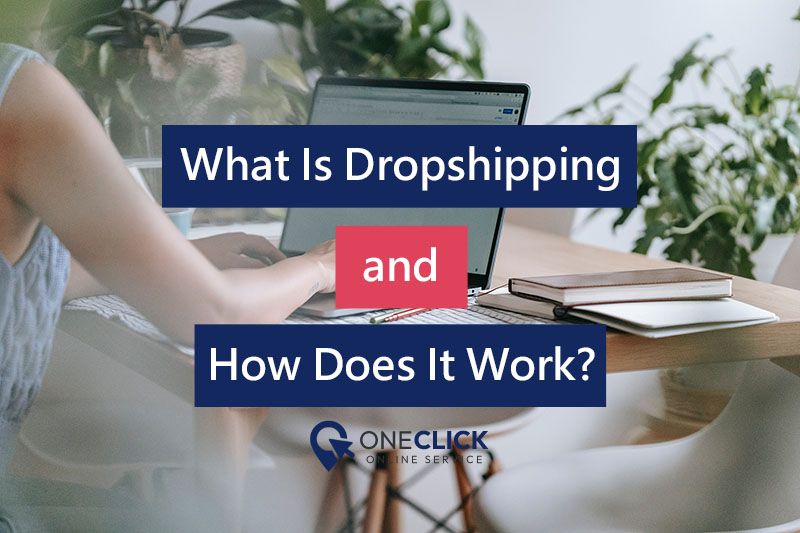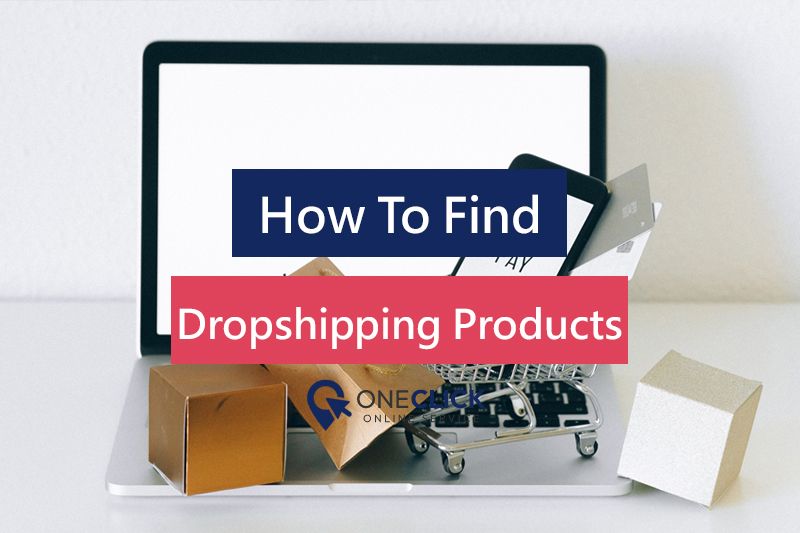What Is More Profitable Affiliate Marketing VS Dropshipping?
In the realm of online business ventures, two strategies, affiliate marketing and dropshipping, stand out for their potential to generate passive income and create successful online businesses. Both approaches have distinctive features that offer entrepreneurs different levels of control, investment, and profitability opportunities.
Affiliate Marketing vs Dropshipping: Basics
Affiliate marketing and dropshipping are distinct business models with their own unique characteristics and processes. In essence, affiliate marketing involves promoting products or services offered by other businesses in exchange for a commission on sales. On the other hand, dropshipping entails selling products from a third-party supplier under your own brand name, with the supplier handling inventory management and order fulfillment. One key difference between affiliate marketing and dropshipping is the payment structure. While affiliate marketers earn commissions for each sale they facilitate, dropshippers directly profit from the sales of the products they sell. Despite these differences, both affiliate marketing and dropshipping share several similarities: Low startup costs: Both business models require minimal initial investment, making them accessible options for aspiring entrepreneurs. No need for inventory storage: Neither affiliate marketers nor dropshippers need to maintain physical inventory, as products are either sold by the supplier or shipped directly to customers. Relatively low-risk: Both affiliate marketing and dropshipping carry lower levels of risk compared to traditional retail models, as there is no need to invest in inventory or incur overhead expenses. While these similarities provide a foundation for understanding affiliate Marketing and dropshipping, it's essential to delve deeper into each concept to fully grasp their nuances and determine which approach aligns best with your goals and resources. If you are confused about choosing dropshipping or affiliate marketing, let's first get to know their general definition.
Affiliate Marketing
Affiliate marketing works by promoting products or services on behalf of a company or merchant. As an affiliate, you receive a commission for every sale or action initiated through your unique affiliate link.
Dropshipping
Dropshipping is a retail fulfillment method where sellers don’t stock products. Instead, they purchase items individually from a third party and have them shipped directly to the customer.
Write your dropshipping business plan right now
To better understand drop shipping vs affiliate marketing, we need to thoroughly examine the pros and cons of each.
Affiliate Marketing Pros:
Easy to Start
One of the most significant advantages of affiliate marketing is its accessibility. Unlike traditional businesses that require substantial capital and resources, affiliate marketing can be launched with minimal barriers to entry. With the availability of affiliate programs across various industries, individuals can quickly sign up and start promoting products or services, making it an ideal option for aspiring entrepreneurs and those looking to generate additional income.
No Need to Manage Customer Support
Unlike e-commerce ventures like dropshipping, affiliate marketers are not responsible for managing customer support or addressing post-purchase inquiries. This alleviates the burden of handling logistics, processing orders, and resolving customer issues, allowing affiliates to focus solely on promoting products and driving traffic to affiliate links.
Low-Startup Expenses
Affiliate marketing requires minimal upfront investment, making it an attractive option for individuals with limited resources or budget constraints. There are typically no costs associated with product inventory, warehouse storage, or order fulfillment, enabling affiliates to generate income without the financial burden of traditional business overhead.
Great Source of Passive Income
One of the most appealing aspects of affiliate marketing is its potential to generate passive income. Once affiliate links are set up and content is published, affiliates can earn commissions from sales generated through their referrals without ongoing effort or active participation. This passive income stream allows affiliates to earn money around the clock, even while they sleep or focus on other endeavors.

Affiliate Marketing Cons:
Low Commissions at the Start
While affiliate marketing offers the potential for lucrative earnings, beginners may encounter challenges in earning significant commissions initially. Many affiliate programs offer low commission rates for new affiliates or require affiliates to meet specific sales thresholds before earning higher commissions, resulting in limited income during the initial stages of the affiliate journey.
No Control Over Pricing
Affiliates have no control over the pricing of products or services they promote, as prices are determined by the merchants or advertisers. This lack of control can pose challenges for affiliates, especially if products are priced higher than competitors or if frequent price fluctuations affect consumer purchasing decisions.
Affiliate Links Can Be Removed or Hacked
Affiliate links are vulnerable to removal or hacking, potentially resulting in lost commissions for affiliates. Merchants may deactivate affiliate links without notice, redirecting traffic away from affiliate sites and preventing affiliates from earning commissions on sales. Additionally, malicious actors may exploit affiliate links through hacking or fraudulent activities, compromising the integrity of affiliate marketing campaigns and undermining affiliate earnings.
Limited to Some Advertising
Affiliates are often restricted in their advertising efforts, as certain platforms and channels may prohibit or restrict affiliate marketing activities. For example, some social media platforms have stringent policies regarding affiliate links and promotional content, limiting affiliates' ability to reach their target audience effectively. These restrictions can hinder affiliate marketing efforts and require affiliates to explore alternative advertising methods to maximize their reach and conversions.
In conclusion, while affiliate marketing offers numerous advantages such as ease of entry, passive income potential, and minimal startup costs, it also presents challenges such as low commissions, lack of control over pricing, vulnerability to link removal or hacking, and limitations in advertising. By understanding these pros and cons, aspiring affiliates can make informed decisions and develop strategies to maximize their success in the competitive affiliate marketing landscape.
Dropshipping Pros:
Build Your Own Brand
Dropshipping allows entrepreneurs to establish and build their own brand identity without the need for manufacturing or storing inventory. By curating product selections, designing custom packaging, and creating branded marketing materials, dropshippers can differentiate their businesses and cultivate brand loyalty among customers.
Higher Profit Rates
One of the key advantages of dropshipping is its potential for higher profit margins compared to traditional retail models. Since dropshippers purchase products at wholesale prices and set their own retail prices, they have greater control over profit margins. By optimizing pricing strategies and operational efficiency, dropshipping businesses can maximize profitability.
Instant Payment
Unlike traditional retail models where businesses must wait for inventory to sell before receiving payment, dropshipping offers instant payment for orders placed by customers. With payment processing platforms integrated into e-commerce platforms, dropshippers receive payment as soon as customers complete transactions, providing immediate cash flow and financial flexibility.
Easy to Scale
Dropshipping is inherently scalable, allowing businesses to expand their product offerings and reach new markets with relative ease. Since dropshippers do not need to manage inventory or fulfillment logistics, scaling operations typically involves adding new products, optimizing marketing strategies, and leveraging automation tools to streamline processes.

Dropshipping Cons:
Needs Customer Support
Despite its hands-off nature, dropshipping still requires customer support to address inquiries, resolve issues, and provide assistance to customers. From order inquiries to product returns, dropshippers must ensure prompt and satisfactory customer service to maintain positive relationships and uphold brand reputation.
No Control Over the Quality of the Service
Dropshippers rely on third-party suppliers to fulfill orders and deliver products to customers, which means they have limited control over the quality of service provided. Issues such as delayed shipping, product defects, or poor packaging can reflect negatively on the dropshipper's brand, highlighting the importance of vetting suppliers and maintaining quality standards.
Price Competition with Other Businesses
The competitive nature of dropshipping can lead to price competition with other businesses selling similar products. Since dropshippers often source products from the same suppliers, pricing strategies play a crucial role in maintaining competitiveness while ensuring profitability. Balancing competitive pricing with profit margins requires careful analysis and strategic pricing adjustments.
In conclusion, while dropshipping offers significant advantages such as brand building opportunities, higher profit rates, instant payment, and scalability, it also presents challenges such as the need for customer support, limited control over service quality, and price competition with other businesses. By addressing these cons proactively and implementing effective strategies, dropshipping businesses can capitalize on its benefits and thrive in the competitive e-commerce landscape.
| Affiliate Marketing | Dropshipping | |
|---|---|---|
| Pros | Easy to Start | Build your own brand |
| No need to manage customer support | Higher profit rates | |
| Low-startup expenses | Instant payment | |
| Great source of passive income | Easy to scale | |
| Cons | Low commissions at the start | Needs customer support |
| No control over pricing | No control over the quality of the service | |
| Affiliate links can be removed or hacked | Price competition with other businesses | |
| Limited to some advertising |
If you just want to start your dropshipping business, don't miss these articles:
dropshipping business plan
15 Common Dropshipping Mistakes to Avoid
What Is More Profitable: Dropshipping vs Affiliate Marketing
In the field of profitability, the debate between dropshipping and affiliate marketing has long been a hot topic. Understanding the nuances of each business model is essential for entrepreneurs looking to maximize their revenue potential. Let's compare the profitability of dropshipping and affiliate marketing to find out which way offers more financial rewards.
Dropshipping: Unveiling the Profit Potential
In the realm of e-commerce, dropshipping stands out as a lucrative venture for entrepreneurs aiming to capitalize on product sales. The allure lies in the ability to determine profit margins, granting entrepreneurs the flexibility to set prices that yield substantial returns. Unlike traditional retail models, where overhead costs and inventory management pose significant challenges, dropshipping enables entrepreneurs to operate with minimal financial risk.
One of the key advantages of dropshipping is the potential for high-profit margins, often exceeding 30%. By sourcing products from suppliers at wholesale prices and selling them to consumers at retail prices, entrepreneurs can effectively double their investment. For instance, procuring a product from a supplier at $15 and selling it to customers for $30 allows for a significant markup, translating to substantial profits.
Moreover, the quality of products plays a pivotal role in fostering customer loyalty and generating repeat orders. By curating a selection of high-quality merchandise, entrepreneurs can cultivate a loyal customer base, driving sustained revenue growth over time. The ability to foster long-term relationships with customers is a distinct advantage of the dropshipping model, enabling entrepreneurs to capitalize on repeat business opportunities.
Affiliate Marketing: Navigating Commission-Based Earnings
In contrast to dropshipping, affiliate marketing operates on a commission-based model, where marketers earn a percentage of sales generated through their promotional efforts. While affiliate marketing offers a low barrier to entry and minimal upfront costs, the earning potential is inherently tied to commission rates set by merchants.
Typically, affiliate marketers receive commissions ranging from 5% to 30% of the sale, depending on the product and industry. While certain niches, such as digital products like web hosting or online courses, may offer higher commission rates, competition within these sectors is fierce. As a result, affiliate marketers must navigate a crowded marketplace to secure lucrative partnerships and maximize their earning potential.
One of the challenges associated with affiliate marketing is the lack of control over product pricing and profit margins. Unlike dropshipping, where entrepreneurs have autonomy in setting prices, affiliate marketers are reliant on predetermined commission rates set by merchants. This limitation can impact overall profitability, particularly in highly competitive markets where commission rates are modest.
Furthermore, the nature of affiliate marketing poses challenges in fostering customer loyalty and driving repeat business. Since affiliate marketers direct customers to merchants' websites, there is limited opportunity for engagement beyond the initial transaction. While strategic marketing efforts can drive traffic and conversions, building long-term relationships with customers remains a challenge in the affiliate marketing landscape.
In Conclusion: Evaluating Profitability
In the debate between dropshipping vs affiliate marketing, profitability hinges on various factors, including profit margins, customer retention, and market dynamics. While dropshipping offers greater control over pricing and the potential for higher profit margins, affiliate marketing provides a low-risk entry point with minimal upfront investment.
Ultimately, entrepreneurs must assess their goals, resources, and target market to determine the most suitable business model. Whether pursuing dropshipping or affiliate marketing, success lies in strategic decision-making, effective marketing strategies, and a commitment to delivering value to customers.
As entrepreneurs navigate the realm of e-commerce, understanding the nuances of dropshipping and affiliate marketing is essential for maximizing profitability and achieving long-term success. By weighing the pros and cons of each business model, entrepreneurs can make informed decisions that align with their objectives and aspirations in the ever-evolving landscape of online commerce.







